Dialogue: Reflections of Consulting Heritage and Implications
Dialogue: Reflections of Consulting Heritage and Implications for Companies' Strategy
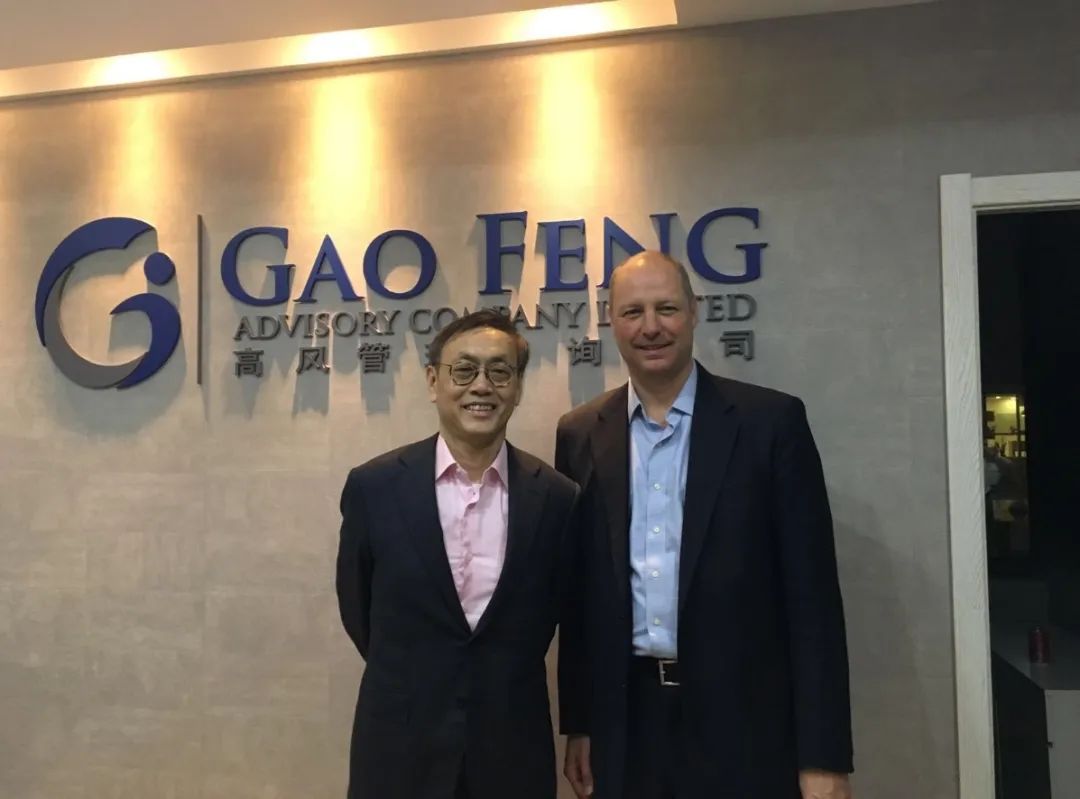
Preface
On March 17th, 2022, Gao Feng Advisory's CEO Dr. Edward Tse had a dialogue with Ron Haddock, Vice President Strategic Planning & Transactions with LyondellBasell and former partner at Booz Allen Hamilton / Booz & Company. In this dialogue, they discussed the heritage of consulting and also the contrast between the role of a consultant versus that of a business executive.
Edward Tse (hereinafter Ed): Hello everyone. My name is Edward Tse. I am with Gao Feng Advisory Company. We are a strategy and management consulting firm with roots in China. Today in this dialogue, I’m very delighted to have a guest, a good friend of mine and ex-partner at Booz Allen Hamilton, Ron Haddock, to join us as a guest on this show. Hi Ron!
Ronald Haddock (hereinafter Ron): Hi Ed. Good to see you and thanks for the opportunity!
Ed: Hi, nice to see you again too, Ron. We worked together at Booz Allen, or later it was rebranded as Booz & Company. You came over to help rebuild the China practice of Booz around 2003, and we had a real good run with building the practice for the firm. But before we talk about all those kinds of experiences, Ron, you came with very distinguished qualifications. You were a graduate of the West Point Academy, later you went to Harvard Business School and got an MBA, after the MBA you joined Booz Allen Hamilton in the US. Perhaps you can describe more about your background - who you are? Where you came from? How you ended up in consulting and what you chose to pursue later on in your career?
Ron: Sure. Thank you, Ed. I began my life as an officer in the US Army, and what I learned through that experience was the importance of purpose and mission. At some point early in my career, I took an interest in the whole domain of economics, business, and business management. Coming out of my MBA studies, I have to say I developed a passion for this idea of strategy, which I knew to be important in any industry or really in any organizational pursuit, and which is what led me to management consulting. I found it to be an industry that was inspiring in terms of driving curiosity and demanding the ability to think and to reason, ultimately toward pragmatic solutions that could work for real organizations.
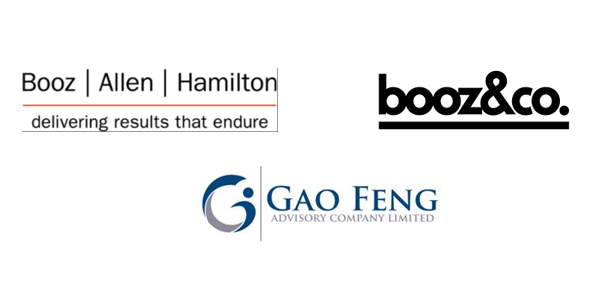
I found Booz Allen to be an excellent platform to pursue strategy work at the time and to be able to do that on a global basis - which is what ultimately led the two of us to meet in Shanghai over 20 years ago on an initial project that we worked on together while I was still based in India.
Ed: That’s why I remembered that, Ron. We were doing a significant project with the Shanghai government. At that time China was about to enter the WTO, so the Shanghai government was very concerned, and they were very interested in the impact of China’s entry into the WTO on four of their pillar industries. So, I asked around the firm who I could recruit to come and help, to be industry experts in these four industries. I remember they were banking, insurance, telecom, and automotive. I got a very strong recommendation that you, Ron Haddock, should assist as one of our experts in the auto industry. And there you were. You came over and helped to execute a very successful project which was highly impactful for the Shanghai government.
Ron: Yes. And what struck me at that time was, first of all, that Booz Allen as a firm would take on such topics and that we would do it in markets where we didn’t yet have a fully established presence. We did not have that much of an understanding of the market as we were fairly new to China. Perhaps what was the most impressive was that the Shanghai government was interested in engaging on a topic about the future of a set of industries and sought to develop a future view of what these industries could become.
What’s fascinating was that, when I think back on all of the analytical work, the strategic view of envisioning what the China auto market would become, I don’t think anyone would have possibly imagined that it would mature and grow as rapidly as it has. It’s been a remarkable combination of industry, working with the government with professional advisors who could envision a path and ultimately make recommendations on actions that could catalyze that path forward. It was a fascinating experience and a good example of what could be done between industry and government.
Ed: Absolutely. Unfortunately, after that project, Booz Allen decided to take a hiatus in China. And I left Booz for a couple of years to join a corporation. Then, when I was ready to return from corporate to consulting, Booz Allen asked me to rebuild the China practice and you heard the news. You were in Seoul at that time, having transferred from India to Seoul.
Ron: I was.
Ed: You wrote to me and you said you were interested in coming to team up and that culminated in our first meeting in August 2003 at the coffee shop of the Grand Hyatt at the Jin Mao Tower, which was the tallest building in Shanghai at that time. I still remember that historical moment because we hadn’t met for a couple of years, but we felt that there was a lot of mutual interest in being entrepreneurial and building something that we thought would be worthwhile building. And there we went, right? Do you recall that whole experience?

Ron: Yes, I do, Ed. It was 1999 when I first visited and worked with you on the initial project. So, it was 2003, four years later.
Perhaps the biggest surprise to me was how much had changed in China in those four intervening years.
What was really astonishing, was the scope of change going on across the economy, across industry sectors, and the fact that the consulting market itself started to have real traction. We were seeing significantly increased demand from our clients and prospective clients for help in navigating where they should potentially play in China.
For me, it was a career-changing moment. I can tell you that to this day, my years in China were the most formative part of my professional life and certainly in strategy consulting.
Ed: Yeah. We can talk more about your experience in China, but let’s take a step back. If I trace your career, having started with Booz and worked very successfully as a strategy consultant, later on, you joined a number of multinational corporations as I understand, mostly in the capacity of strategy, and transformation, right? Your career has evolved almost entirely in these areas. In your journey, how important do you think strategic thinking is for corporations and for people who work in corporations?
Ron: Good question, Ed. When I say strategy, there is a broad spectrum of what you would classically include under the topic. It’s the upfront visioning of where you are, where you could potentially be in an industry, and down to the more transformative elements of what you have to change in a corporation to realize a strategy. My experience has been across that spectrum.
What I found to be true, regardless of the organization you are in, whether it’s a classic type of industry that I have been in, or multi-industrial conglomerates, or in the military or in government, is that, it all starts with having or defining a fundamental purpose. Why do you exist? Why do you matter? What is your vision? What you are trying to achieve in a way that you can align people behind it?
Then strategy, as you know and we have worked on it so many times in the past, is a set of choices. What are the options that are available to you? What options best suit your path forward, knowing that you can’t predict the future? But what you are trying to do is to anticipate the events that could happen, or that you can potentially shape. Strategy is a mindset and a skill set that is important for organizations of any size, and ultimately, it’s about the results your strategy achieves. There is also a piece of thinking through - what are the actions that you have to take to make a strategy real.
I found experience in working through strategies to be personally, deeply satisfying. I found that people who invest in acquiring the mindset and skills can make a real impact, and if you want to have a successful company, you better have at least one person who’s thinking about that in your company.
Ed: Absolutely. The other dimension is geography, right? In your career, you have worked in America and Asia, including India, Korea and China, and then you also worked in Europe. From the geographical dimension standpoint, did you see any major differences between the strategy principles across geographies?
Ron: Very good question, Ed. It’s a question that a lot of people asked because a lot of people are trying to understand in the age of globalization, how applicable are the skills and mindsets from one market to another.
First of all, the basic principles never really do change because they are derivative of the basic principles of micro and macro-economics, and derivative of human behavior that overlays this in the way that people and companies make choices.
Ultimately, I think becoming a good strategist is all down to pattern recognition. What are the patterns I’m seeing? How can I relate those to patterns that I’ve potentially seen somewhere else? The patterns help you understand what the issues are.
The second part of that is context. The context of any given market or any given geography is going to be unique to that particular location or geography. While contexts can and usually are different, what you’re looking for are the sources of advantage and the different practices and the regulations that will shape them. So armed with an understanding of patterns and the ability to understand context, it allows you to start shaping an understanding of the issues as well as the possibilities.
I think one of the biggest challenges, and you and I have talked about this many times, is that when you take an executive from a geography where they spent their whole career, then put them into another one, what they’re trying to figure out is what the patterns are. And frequently, if they haven’t gone through this experience before, or seen different contexts, there’s a tendency sometimes to go with gut instinct as to what worked in another geography. It could very well turn out that the context is so different that analogies gained through experiential learning just don’t apply.
So, I would say that’s probably one of the biggest pitfalls I’ve seen in my post-management consulting life. I’ve worked in companies with people who were very deep in a particular market, geography, or function. Some things translate but not everything does. Just given the stakes, you don’t want to rely just on what you knew and worked in geography A when you go to geography B.
Ed: Yeah. I think that’s a very important point because we have so many multinational companies or foreign companies who were interested in coming to China or doubling down the investments in China around the time when you and I worked together. The most common pitfall we saw was the tendency to copy and paste what they did from elsewhere and say that the same would work in China. For many companies, China was viewed as just simply another market, but the reality was not as simple. As you said, the context makes a difference.
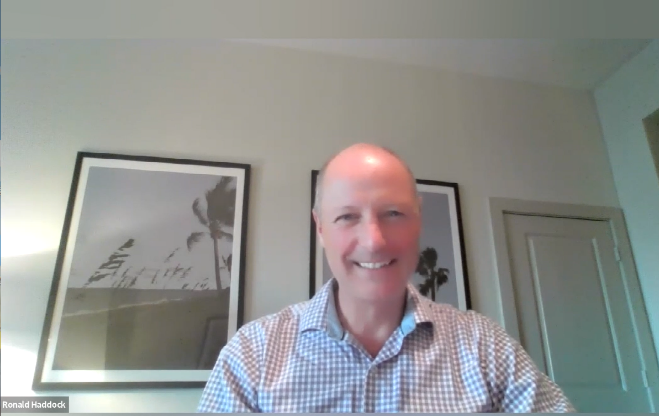
The context of China is often more different than the context of the western markets. The differences can be so significant that you can’t just blindly copy and paste a business model or product from another market into China. That’s one of the key reasons why when many multinationals first came to China, they found China to be so challenging.
Ron: Yes, exactly. And if you were to look and say how does that work when you go into countries or markets that are smaller or less complex than China, I would say a lot of multinational executives and companies sometimes could kind of get away with these cut and paste approaches because the geography or the market was small enough that you could come in and impose a business model or a solution. And it might work okay because you didn’t have so many multinationals crowding into a market, and you might not have domestic companies that are also competing fiercely in a particular market.
I would say what makes China unique and what exposes the faults in this kind of one-size-fits-all thinking firstly is the unprecedented magnitude of the market itself. Today, on a purchasing power parity basis, China is the biggest or second-biggest market in almost any industry.
Second is the pace of development and so the name of the game and what it takes to win is shifting so rapidly that you need a much shorter cycle for your strategies. I would also say this kind of unique combination of state-led versus private sector entrepreneurship, a unique blend that has allowed China to create companies both with the state’s help as well as without it, has helped create the high rates of growth that we have seen in China.
Then finally, China is such a substantial market in its own right, that in many cases it’s bigger than the home country market for many multinational companies. As a result, the growth prospects and profit opportunities outweigh the home market, and so it becomes the focus of a company’s global strategy. Given a lot of the innovation we've seen in China, it could be the basis of new business models that emerge from China, and that have applicability and advantages elsewhere in the world. We have seen this pattern across industries. For every major US multinational, you'll find an analogous company in China. In some cases, the Chinese companies have been moving faster, and of course, you would expect many of them to take their business models globally. So, in China, the consequences of getting your strategy right can be significant beyond China itself. You've got to have a sharper game.
Ed: We're going to talk more about China. We can talk about China for hours, right? But maybe I can ask a more fundamental question before we go back to China again. So, you spent time being a strategy consultant. You also spent a long time being a leader of the strategy function in large corporations. What has excited you the most in those roles? What have you found to be the most challenging?
Ron: I would say, the common denominator in these roles has been taking unstructured opportunities or problem statements, putting structure around them and being able to lead or participate in formulating problem or opportunity statements that are material.
They are significant because they will ultimately affect the fortunes of either your clients as a consultant or in my case now, the fortunes of my company itself. There’s an intellectual challenge that stems from curiosity. There's an aspiration for excellence, which is around strong problem-solving skills and the ability to translate that into actions and then get results and the satisfaction that comes through these results.
I would say what's different about being an advisor versus being in a large corporation is that advisors are usually brought in for a narrower scope of work than what an internal team is expected to take on. Advisors participate in part of a company's life cycle. But when you're an executive in a company, you're there for a much longer duration. Many touch points have to be reconciled across different businesses or different functions, and a lot of the softer skills that require development to be successful in a company you might not need as an outside consultant. By contrast, as a consultant, I think there's a deeper focus on analysis than what we typically have in a large corporation and typically a broader analytical tool kit. The two experiences and skill sets are highly complementary. There's a high degree of overlap. I can only say that both experiences have been equally challenging and rewarding to me.
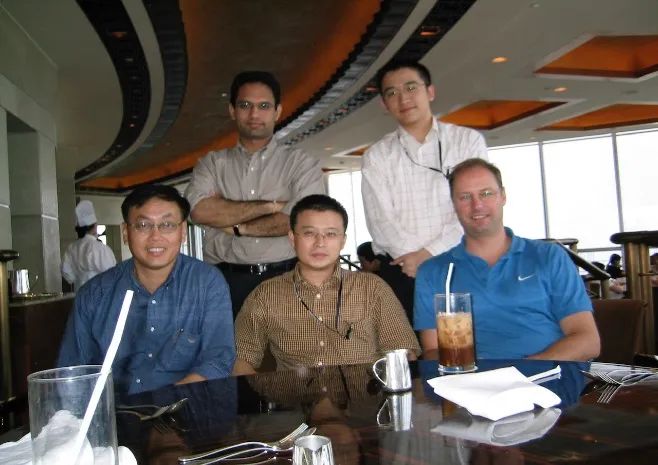
Ed: In your corporate career, you worked across a number of different industries. I recall you worked in automotive, building technology, materials, chemicals, real estate, and technical services. If you look across these various industries and compare and contrast the different companies’ approaches to strategy, how would you view them?
Ron: So first of all, the one thing that all of these industries have in common is there's a reason why they are important. It's because they are all tied to the modern lives that we live today. Without any one of these industries, modern life itself would not be possible. That gives rise to purpose. There's a reason why these companies need to exist and thrive.
There are also almost-predictable development curves that these various industries go through. As an executive responsible for helping to formulate strategies and periodic transformations, it's essential to have a point of view on the future and what you're trying to achieve ultimately for all of your internal and external stakeholders with a heavy focus on the value that you deliver to customers and shareholders.
The range of problems is fairly common. It's ultimately about growth. It's about an organization's ability to drive that. It's about efficiency and effectiveness. The actual technologies can differ and differ quite significantly, but here too, all of the technologies are derivative of some fundamental underlying natural science. Physics and chemistry are at the root of most of the industries. Having some understanding of the underlying science and the technologies that are built on these are common across any industry that I've worked in.
So that’s been a lot of my focus - understanding the basics of what drives an industry, how you create value for customers, and then ultimately putting in place the programs that allow, in some cases, tens of thousands of people working together to achieve a vision. I found there to be a very common set of requirements to succeed across industries.
Ed: I see. Let's come back to China and talk a little more about China, given your impact on the China consulting during your time in China. When you took the firm from zero, from nowhere - because we had just restarted the whole practice from zero - and built it to a significant practice at the premium end of the consulting industry in China. By the time we left Booz & Co, we had achieved incredible and extremely fast growth, not only in so-called business volume, but more importantly in the impact that we had in the business community. And not only with multinational companies, but also with a large number of local Chinese companies. That experience in my view was precious. Thanks to your partnership, we built an incredible team, a team that was full of other professionals including the senior principals, senior associates, as well as newly joined associates, analysts, and our support staff. In general, we were able to attract very high-quality professionals. In this context, I would like to validate with you a few more questions on China.
Consulting, in my view, doesn’t represent the entire business world. But it's a microcosm of the business world because consultants are given glimpses of what the businesses are doing and where a business is seeking to go. And usually, especially strategy consultants, they are involved in the most strategic issues or most relevant issues of a client. So, consultants have the ability or at least the opportunity to see a lot. In your experience in consulting in China, compared to experiences that you had in other markets, what stood out to you that makes you feel China is different, not only in the context of the market, but also the consulting approach in China? What was the biggest difference or differences you felt or saw? And why were those important?
Ron: Yeah. Good question, Ed. I would say what stood out at the time in consulting in China, and I suspect this might be the same today, was that there was a lot more need for future-oriented strategy work than what I've seen anywhere else in the world. And it's because the industries were and probably still are rapidly developing, and in some cases, still emerging. In the past there was always a shortage of people who could do this work. Today, I suspect, there is a much greater number of people in the China market and companies who are experienced in the art and science of developing strategies.
In the other markets that I've worked in, like the United States and Western Europe as well as in Korea, a lot of the industries were arguably more established or not growing as fast. Companies had more of the required capabilities in-house, so the consulting firms tended to do much more functional types of work. A lot of the consulting work started to become routinized such that, in some cases, people would cynically say they were following a template approach to strategy.
In China, templates still needed to be created at the time. But the focus of the work was significantly more on discovery and insights around how markets or customers may evolve and how to find or create competitive advantages. For people who like that type of work, and that certainly includes me, strategy consulting in China has to be one of the most interesting professional opportunities in recent decades. I don't think there's been another market that's been quite like it.
Ed: Yeah, this brings me to two additional points. One point is about the importance of what we call “thought leadership”. It is a term that we borrowed from the first editor of Strategy + Business, which was the business magazine of Booz Allen. Art Kleiner first coined the term “thought leadership'' and I thought it was relevant for China. Therefore, we intentionally generated and disseminated large numbers of thought leadership pieces through our observations of the work and our practices, and disseminating and sharing this with our clients, which is what helped us build our brand. So thought leadership was critical.
The other is if you look across the world, because different markets are in different stages of their life cycles, the nature of the consulting work and the sizes of the projects could be quite different. Therefore, the overriding thought of the firm, at that time, was that every partner should focus only on a handful of clients to maximize the revenue per client. To generate a book of business for yourself and also the partners you work with, that was the notion. The idea of focus, meaning only working on a few clients, was the motto for the firm, but of course in China that philosophy wouldn't really work.
First of all, the consulting market was nascent. There were not enough large clients that you could rely on, that could generate revenues of the kind of magnitude that the firm expected. The second was that even if you had those kinds of clients, if you only focused on one or two clients, you wouldn’t have enough data to do the pattern recognition that you mentioned earlier as a first principle of strategy.
What we had decided to do as our strategy was that we actually ought to do a lot of projects where the market was telling us there was an actual client need. We were less concerned about which industries and clients we served. We had the confidence that we were going to help our clients crack their strategic issues because we knew China as well or better than anyone else. We combined geographic knowledge plus industry and functional knowledge to help our clients crack their problems. And so that to me was a very important element of consulting in China. I still hold this philosophy even today, well over 20 years after we launched Booz Allen in China. This is still the right approach to consulting because it helps develop thought leadership as well.
So, tell me about how you generated so much capability to develop thought leadership. I still remember working with you on quite a number of the significant thought leadership pieces. I remember we worked on an article called Managing Discontinuities in China. That was a fascinating topic and also a very interesting phenomenon.
Ron: Yes, you’re absolutely right. The very best strategy consultants are people who see patterns and they can see them across industries. It's hard to do this in consulting today because the consulting industry model in so many markets has turned into creating standard templates and finding people who can apply them. Consulting has in many places become more of a business based on scale through repetition. Some people are attracted to this approach and there is definitely a market for it. But if you're looking for the very best thinkers, you can't get there that way because there is only one learning curve and the learning curve goes flat when you stay too narrow or work in only one industry.
To be a bona fide strategy consultant – and I see this now because I am in a position where I hire consulting firms on occasions to explore strategic issues – you need to find the people who can think laterally and see patterns, and what you find is that these are not the people who are specialized in just one thing. They are a different breed. You know that very well at Gao Feng because that's been your lineage. You grew up with this approach because that's what the market demanded in order to help clients with complex business problems. The problem statements and the solutions never exist purely within one industry. You have to draw on wider knowledge.
I found this broader industry exposure to be personally very helpful in my career. In the multi-industry companies I've been in, we also had divisions with completely different technologies and that participate in very different markets.The ability to see the patterns across these businesses and be able to formulate strategies with them has been essential for me. So, how did I get there? I wish I could say that I planned to develop thought leadership in advance. The reality is that I’d never done it before, but what I found was that it was a necessity to succeed in strategy consulting in China. Why should a client hire you if you don't have a point of view on their industry and company, and if the point of view was not well thought through and sufficiently researched? Until you go through such a process, I don't know why a discerning client should hire you. I would say we probably did it because we realized first of all that you have to do it if you want to have a client who would sign on to you, but in the process of doing it, we essentially went up our respective learning curves and developed the ability to do this more and more effectively over time.
Ed: If you were to come to China again in 2022 and were serving multinationals who want to grow, how would you rethink your approach to strategy in China? What would you tell them now after all this time?
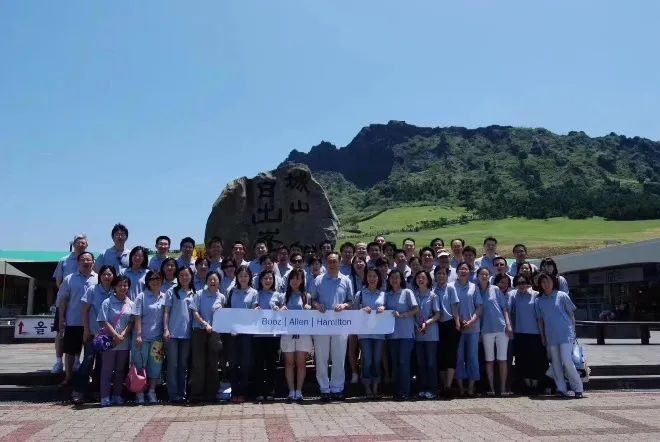
Ron: It's funny because I've had the opportunity over the last decade with all of the companies that I've worked for to do some China-related strategy work. What I would say is the same thing that we were saying in 2003 - what has continued to change and emerge is the market context and this is the basis for any strategy. I don't know what the latest figures are, but the total GDP of China is multiple sizes of what it was in 2003. The complexity has only grown, and the intensity of competition has magnified beyond anything that anyone would have imagined at the time. But I'm confident that the basic principles of strategy have not changed.
I'm also confident that you still have to understand the context, you still have to see the patterns, and you still have to go through the process of developing original thinking.
So, if I were to go to China today, I would park at much of what I've learned in the past in terms of actual facts and figures, and I would go up that same learning curve process again. And I'm confident that I would be able to replicate this process but it would require new research and exploration to arrive at the right ideas and solutions that work today. In short, I would sum it up by saying I’d need to once again become a student and seek to learn.
Ed: At Booz, you were viewed as a people partner. The team liked you. You helped to recruit a large number of new team members, and we had a really good team. Our team was extremely high quality. In hindsight, what were the takeaways that you had about team building and the importance of having high-quality teams in a professional environment?
Ron: If you look at a lot of the consultants that we recruited right out of the top Chinese universities, many of them went on to the top MBA programs in the world and then had significant professional careers after that both in consulting and banking and other disciplines.
I would say my takeaways were that we started by looking for the right people, with the right backgrounds in their academic preparation, the right motivation for a role in consulting which included intellectual curiosity, the willingness to be humble, but commit to a process of learning, the willingness to collaborate on teams and not take things personally when your idea doesn't rise to the top, and ultimately the ability to work hard. I think working hard kind of goes without saying. The people who were the most successful with us shared the very same traits that we do, like intellectual curiosity, passion for helping the clients achieve their purpose, putting themselves into the shoes of the client, and even role-playing what it would be like to be in some of our client industries. I think all those perennials are still the same today.
Ed: That’s right. While we talked about our team, we should also mention the support we got from Booz Allen's leadership at that time, which was incredible. Of course, Dan Lewis was the President of the firm’s Worldwide Commercial Business. He was the lead person who really helped us rebuild China. And he asked Eric Spiegel who was Senior Vice President in charge of International based in Tokyo at that time to assist our early ramp-up. After Eric stepped down from his role, Dan then assigned Steve Wheeler as the new Senior Vice President for International. Steve worked with us closely and was instrumental in helping us to accelerate our growth in China and being the bridge between us and the senior team at Booz Allen. And of course, we also got Dan’s and Steve’s support to form a China Board which consisted of partner representatives from every major industry sector that we served. They would come to China once or twice a year. We held client visits, conferences, and so on, which were all highly impactful. We wouldn’t have been able to do all of this without the tremendous support of the firm.
I think all the conditions were right at that time and this certainly helped our China team succeed.
Ron, I’ve taken a lot of your time. I am conscious of the time and I appreciate your time very much. But before you go, I want to ask you one last question - perhaps it’s not necessarily in business but it could also be business related, what would be the most one or two memorable events that you recall during your days in China?
Ron: There are so many. As I said that it was the most formative period of my professional life. I think I could cite many events or times that were memorable. The opening of our formal Shanghai office comes to mind, where we had members of the press, friends, former associates, and all of our new colleagues join us, after we made the move from our temporary office in the Jin Mao Tower to the office in Xintiandi. I thought it was a major turning point because it signaled the coming out of Booz Allen in China. There were many similar events to follow, including the opening of the Beijing office, and the opening and expansion in Hong Kong, but I have to say that it marked a major turning point for me and it remains a a highly memorable event.

Ed: That’s fantastic. I also remember that you, Kevin Ma and I went to Ningbo on an early client visit.
Ron: That was the second one I was going to mention. I remember I was taking photographs the whole day of this place I’d never heard of, a “small city” of 7 million, with advanced infrastructure and with a lot of construction activity underway. I was completely blown away by what was going on in Ningbo at the time.
Ed: If you go back to Ningbo today, you wouldn't even recognize it.
Ron: It was just amazing, and the same pattern repeated itself with each new city I visited. At some point I stopped taking all these photos, or at least I didn't want you guys to see me doing it, because everywhere we went, it was the same story. It was the rise of China in a way that would have been impossible to understand without actually seeing the scope and pace of change first-hand.
Ed: My observation on that trip, but also on numerous similar trips, was when we went to talk to people like Ningbo Bird at that time, from the perspective of an international standpoint at that time, this was an unknown company. They would have been described by many as just a copycat. But you could tell by the questions that the managers asked, the curiosity that they had and the ambitions that they expressed that they wanted to catch up and achieve something significant. It was incredible meeting companies like them. You could feel a real urge of wanting to make progress.
Ron: A thirst for knowledge, a thirst for achievement, a passion to do it and to take risks, right?
Ed: And that all came out in a very genuine manner. It’s not like they wanted to cheat, or they wanted to take shortcuts. They genuinely wanted to become much better.
Ron: It’s this infectious enthusiasm that when you see it, you kind of get absorbed into the conversation into the passions of the client. I think that's what the very best strategy consultants do as you get into the role. You become one with your client over time, and that's where you ultimately can align and do your best work.
Ed: That’s great, Ron. It's been a great conversation as always.
Ron: Good to catch up, Ed. Always a pleasure. I think you're doing great things with Gao Feng, essentially extending the original vision and mission that we had with Booz Allen. It’s almost 20 years later but it continues. It's a pleasure watching your continued growth and achievements.
Ed: Yeah. That's the consulting heritage. We would like to carry the torch because otherwise that torch will be gone somehow. I'm still carrying the torch. All right. Thanks a lot, Ron. Nice talking to you. Goodbye.
Ron: Bye.
Epilogue
It’s been 20 years since Ron Haddock and I rebuilt the China practice for Booz. We had a really good run in creating major impact for our clients and the business community in general. Many people had asserted that doing consulting right in China was - and still is - hard. Our experience tells us that if you knew what you were doing, it wasn’t, and shouldn’t be, that hard. You also needed a very supportive firm and a great team.
The partnership with Ron and other seniors at Booz have shown that in fact, differences in nationality, background and previous experience didn’t matter that much when working in China, which was then a nascent market, for a US-headquartered international professional services firm. What mattered much more was the shared purpose, vision and values. That mental alignment overwhelmed everything else. We had that at Booz China when Ron was here.
While many companies viewed China as an “emerging market”, they didn’t realize that China had quickly become the laboratory in which cutting edge business thinking and innovations were coming out. It was due to - what we discussed in our dialogue - the context. While the quickly evolving China context had thrown many multinational corporations off their guard, it exposed new dimensions of doing business that many Western companies had not seen in the past. As a result, many companies felt they had to learn and to catch up. That challenged the original assumptions of many Western companies about China when they first started to invest in the China market.
After a deal in 2013, the management consulting firm known as Booz & Company ceased to exist. However, the spirit and values of that consulting lineage still remain. Upholding that heritage as well as that from the founding fathers and key captains of the consulting profession, is essential for our profession. Thanks again to Ron Haddock for being a key part of that journey.
About the Interviewee
Ronald Haddock is Vice President, Strategic Planning & Transactions for LyondellBasell, one of the world’s largest plastics, chemicals and refining companies. He is responsible for developing corporate strategy, facilitating its execution, and driving Corporate Development and M&A activity. He is a senior executive with over 25 years of corporate strategy and business development experience, having held a variety of leadership roles. Most recently, he was Vice President, Strategy and Business Development for Carrier/United Technologies. Previous to that, he was Senior Vice President Strategy and Innovation for CBRE; and Vice President, Strategy and Business Transformation for Johnson Controls. He was a partner with Booz Allen & Hamilton for 17 years based in the US, Europe and in Asia Pacific (China, India, Korea) focusing on industrials, consumer products and services.
About the Interviewer
Dr. Edward Tse is founder and CEO, Gao Feng Advisory Company, Adjunct Professor of School of Business Administration at Chinese University of Hong Kong, Professor of Managerial Practice at Cheung Kong Graduate School of Business, and Adjunct Professor at the SPACE program of University of Hong Kong. He is also a member of Global Future Council on China at the World Economic Forum, as well as a member of advisory boards for private equity and venture capital companies. He was also a special policy advisor for Shanghai Municipal Government, as well as a member of Commission for Strategic Development for the HKSAR Government. He started his strategy consulting career at McKinsey’s San Francisco office in 1988 before returning to Greater China in the early 1990’s. He became one of the pioneers in China’s management consulting industry, by building and running the Greater China operations of two leading international management consulting firms (BCG and Booz) for a period of 20 years. He has consulted to hundreds of companies, investors, start-ups, and public-sector organizations (both headquartered in and outside of China) on all critical aspects of business in China and China for the world. He has also advised the Chinese government organizations at different levels on strategies, state-owned enterprise reform and Chinese companies going overseas, as well as to the World Bank and the Asian Development Bank. He is the author of several hundred articles and five books including both award-winning The China Strategy (2010) and China’s Disruptors (2015), as well as 《竞争新边界》 (The New Frontier of Competition), which was co-authored with Yu Huang (2020). He holds a SM and a SB in Civil Engineering from the Massachusetts Institute of Technology, as well as a PhD and an MBA from University of California, Berkeley.
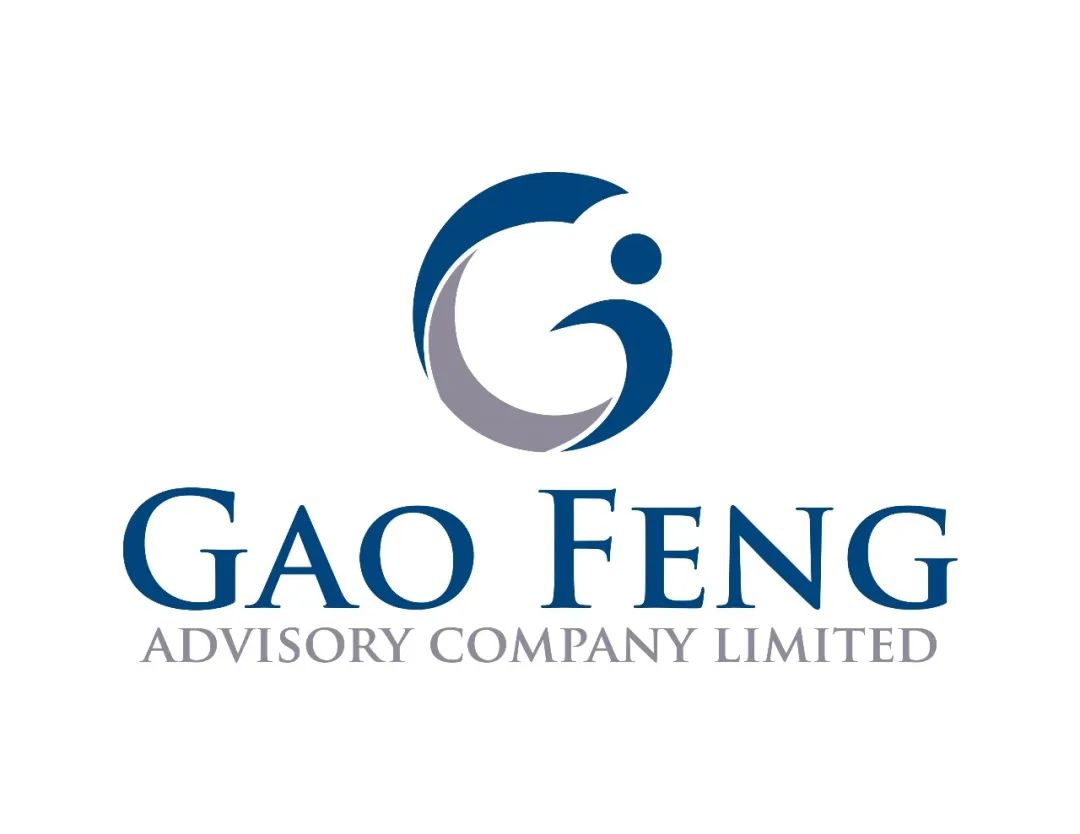

Gao Feng Advisory
Gao Feng Advisory Company is a professional strategy and management consulting firm with roots in China coupled with global vision, capabilities, and a broad resources network
Wechat Official Account:Gaofengadv
Shanghai Office
Tel: +86 021-63339611
Fax: +86 021-63267808
Hong Kong Office
Tel: +852 39598856
Fax: +852 25883499
Beijing Office
Tel: +86 010-84418422
Fax: +86 010-84418423
E-Mail: info@gaofengadv.com
Website: www.gaofengadv.com
Weibo: 高风咨询公司
